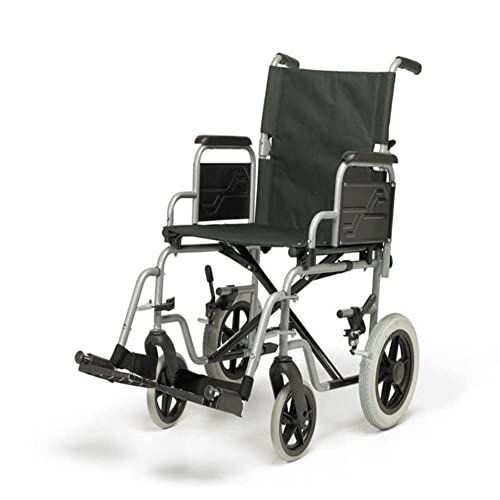The 10 Most Scariest Things About Disability Scooters Near Me
Navigating Mobility: Exploring Disability Scooters Near You
In a world where mobility is often taken for approved, disability scooters play a crucial function in improving the lifestyle for individuals with physical limitations. These devices provide a sense of self-reliance and flexibility, permitting users to browse their lives with higher ease and confidence. This article explores the world of disability scooters, exploring their advantages, types, and how to discover the right one near you.
Comprehending Disability Scooters
Disability scooters, likewise known as mobility scooters, are motorized vehicles designed to help people with mobility concerns. They are particularly useful for those who have difficulty strolling cross countries or representing extended durations. These scooters come in various types and models, each catering to various requirements and environments.
Key Features of Disability Scooters:
- Motorized Movement: Most scooters are powered by electric motors, making them easy to run without physical strain.
- Seating Options: Scooters can have a variety of seating options, consisting of adjustable seats and back-rests for convenience.
- Speed and Range: Depending on the model, scooters can travel at different speeds and have varying battery varieties.
- Mobility: Some scooters are developed to be portable, with functions like foldable frames and lightweight materials.
- Safety Features: Many scooters come geared up with security features such as headlights, turn signals, and brakes.
Kinds Of Disability Scooters
Three-Wheel Scooters:
- Pros: More maneuverable in tight areas, lighter, and typically more budget friendly.
- Cons: Less steady on unequal surface areas.
Four-Wheel Scooters:
- Pros: More stable and better for outside usage, can handle rough terrain.
- Cons: Larger and less maneuverable in tight areas.
Travel Scooters:
- Pros: Lightweight and portable, easy to dismantle for transportation.
- Cons: May have a much shorter variety and lower speed.
Heavy-Duty Scooters:
- Pros: Built for larger users, can handle rough terrain and heavy loads.
- Cons: Heavier and less portable.
Advantages of Using a Disability Scooter
Increased Independence:
- Mobility scooters enable people to travel individually, minimizing reliance on others for everyday jobs.
Improved Quality of Life:
- By making it possible for users to take part in social activities and preserve an active way of life, scooters can significantly boost overall well-being.
Lowered Fatigue:
- For individuals with conditions that trigger fatigue, scooters provide a method to save energy while still being mobile.
Enhanced Safety:
- With features like lights and brakes, scooters can assist users navigate securely, specifically in low-light conditions.
Finding Disability Scooters Near You
Regional Mobility Stores:
- Search Online: Use search engines to find regional mobility stores. Try to find keywords like "disability scooters near me" or "mobility scooter stores [your city]"
- Go to Stores: Once you have a list of stores, visit them to evaluate various designs and get a feel for what works best for you.
Online Retailers:
- Popular Websites: Websites like Amazon, eBay, and specialized mobility stores provide a wide range of scooters with in-depth item information and client evaluations.
- Research study Thoroughly: Read reviews and compare rates to discover the very best deal.
Rental Services:
- Short-Term Needs: If you just need a scooter temporarily, consider leasing one. Many mobility stores provide rental services.
- Try Before You Buy: Renting can likewise be a great way to test different designs before buying.
Neighborhood Resources:
- Local Support Groups: Join regional support groups for people with mobility problems. They can offer recommendations and guidance.
- Disability Organizations: Organizations like the National Multiple Sclerosis Society or the Arthritis Foundation typically have resources and information on mobility help.
Frequently asked questions
Q: Are disability scooters covered by insurance?
- A: Some insurance coverage plans, consisting of Medicare, may cover the cost of a mobility scooter if it is deemed clinically required. Consult your insurance coverage company for particular coverage information.
Q: How do I choose the right scooter for my needs?
- A: Consider aspects such as your weight, the surface you will be using the scooter on, and the distance you require to travel. Test various designs to find the one that feels most comfortable and meets your requirements.
Q: Are there any security pointers for using a disability scooter?

- A: Always wear a helmet, use lights and turn signals, and avoid utilizing the scooter in extreme climate condition. Routine maintenance is likewise important to ensure the scooter remains in excellent working condition.
Q: Can I use a disability scooter inside your home?
- A: Yes, numerous scooters are developed for both indoor and outdoor use. Nevertheless, ensure the scooter you select appropriates for the type of surface areas you will be navigating indoors.
Q: How do I maintain my disability scooter?
- A: Regularly inspect the battery, tires, and brakes. Follow the manufacturer's upkeep standards and have actually the scooter serviced by a professional a minimum of once a year.
Disability scooters are a valuable tool for individuals with mobility problems, using a variety of benefits that can substantially enhance their quality of life. Whether you are searching for a three-wheel scooter for indoor usage or a heavy-duty model for outdoor adventures, there is a scooter out there that can fulfill your needs. By checking out local stores, online retailers, and neighborhood resources, you can discover the perfect mobility service to help you navigate your every day life with confidence and independence.


